Last week there was acute concern in government about the country’s re-opening. Would restrictions need to be reimposed when schools return in September? Ministers fretted. But those nerves have now been replaced by cautious optimism. Case numbers have been falling for a week straight and it increasingly looks as if this wave has peaked.
No one in Downing Street wants to declare mission accomplished. What will happen to the numbers when people’s fear of being ‘pinged’ by Test and Trace eases and they start to socialise more? Cases need to be falling consistently between now and schools returning.
Privately, scientists are stressing risks remain. They warn that there is still a danger of another wave with a bigger peak than this one. But the situation a week after all legal restrictions have been lifted (apart from the requirement to isolate) is far better than the models predicted.
For Boris Johnson, a successful reopening would be a huge relief after a difficult few weeks. The Conservative party’s lead over Labour in the polls has narrowed. Back in May, when the Tories took Hartlepool in a by-election and turned in a strong performance in the English local elections, they had a clear message. They argued that the UK’s impressive vaccine programme meant that society could be safely reopened. The delay to reopening announced on 14 June, prompted by the Delta variant and rising infection numbers, meant that this case lost its potency. Tory MPs complain that in both the Chesham and Amersham and Batley and Spen by-elections, the party had no narrative, no story to tell.
When society did reopen on 19 July, there was considerable public nervousness about whether it was the right thing to do. One experienced hand admits that the decision to drop restrictions was out of step with public opinion, which has been cautious throughout the pandemic. Then there was the Prime Minister and the Chancellor’s ham-fisted attempt to avoid isolating. It is not hard to see why support for the Tories has slipped.
A successful reopening, one which doesn’t require the return of any restrictions when schools come back, would improve the public’s perception of Johnson’s handling of the pandemic. It would also enable him to move on to subjects other than Covid, something he is clearly keen to do — look at this week’s announcements on crime.
The return to the classroom will almost certainly result in a rise in cases. But with an ever-greater percentage of the population vaccinated, this should not cause too many problems. And the end of classroom bubbles means that whole classes will no longer be sent home just because one pupil tests positive. Life will be far less disrupted.
A schools-related rise in cases would, though, draw attention to the UK’s decision not to vaccinate teenagers. The Joint Committee on Vaccination and Immunisation has recommended that only those teenagers at increased risk of getting seriously ill from Covid-19 and those who live with an immune-suppressed person should be jabbed. This is understandable given how few young people get seriously ill from the virus, but it makes the UK a bit of an outlier among developed nations. The US recommends vaccination for everyone over 12, as do 16 European countries including France and the Republic of Ireland. Government sources are at pains to stress that decisions on who to recommend vaccination for are the JCVI’s. But one senior government source observes that the decision not to vaccinate teenagers does put the UK at a ‘structural disadvantage’ when it comes to trying to stop the spread of the virus.
Given that the government’s unspoken strategy is to achieve herd immunity through vaccination, the fact that the UK is not jabbing secondary school pupils is a problem. It also means that vaccination rates among adults become particularly important.
Johnson’s chief concern at the moment, as he told Tory MPs just before parliament rose for the summer, is that there are three million 18- to 30-year-olds who have not had their first jab yet. The government is toying with various ways to persuade them to get immunised. In Whitehall, the assumption had been that the fact the double-jabbed could travel to more countries without quarantining on return, and from 16 August won’t have to isolate if pinged, would lead to all but the most vaccine-hesitant getting their shot. But vaccine rates in the 18-30 bracket remain low compared to rates in older age groups.
The hope in government now is that the idea that only the double-vaccinated can go to nightclubs from late September will prompt more people to come forward. It also explains the suggestion that only fully vaccinated students will be allowed to live on university campuses. The problem with these measures, heavier on the stick than the carrot, is that they make a lot of Tories — including some ministers — uncomfortable. They could only be passed in the Commons with the support of a significant number of opposition MPs, because Tory rebels would easily wipe out the Prime Minister’s majority. So why not go for a softer strategy like Ohio or Maryland’s vaccination lottery, where randomly selected recipients of the jab win a jackpot? The trouble with incentives is that it seems unfair if those who had delayed getting the vaccine are now offered a substantial prize for taking it.
In Whitehall, though, they are struck by the fact that a great many 18- to 30-year-olds dramatically underestimate what proportion of their peer group have been vaccinated. Many say they think it is as low as 5 to 10 per cent, when it is actually 60 to 65 per cent. Emphasising that the majority of youngsters have already had the vaccine might prompt the remainder to come forward.
Covid has dominated our lives — and our politics — for so long that it is hard to conceive of it ceasing to do so. Certainly, the spectre of another wave of infection will haunt the government until at least Easter. Dealing with the fallout from the pandemic will take at least the rest of this parliament, but if this fall in cases is sustained, it will be clear that the country is — finally — through the acute stage of the crisis.
Got something to add? Join the discussion and comment below.
Get 10 issues for just $10
Subscribe to The Spectator Australia today for the next 10 magazine issues, plus full online access, for just $10.
You might disagree with half of it, but you’ll enjoy reading all of it. Try your first month for free, then just $2 a week for the remainder of your first year.


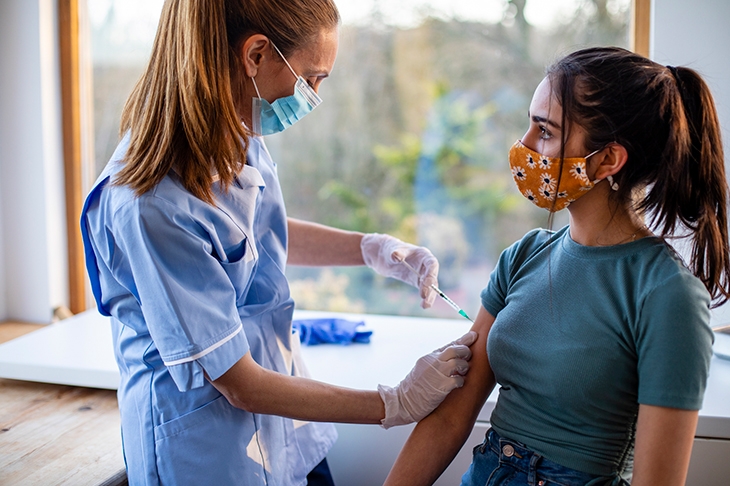
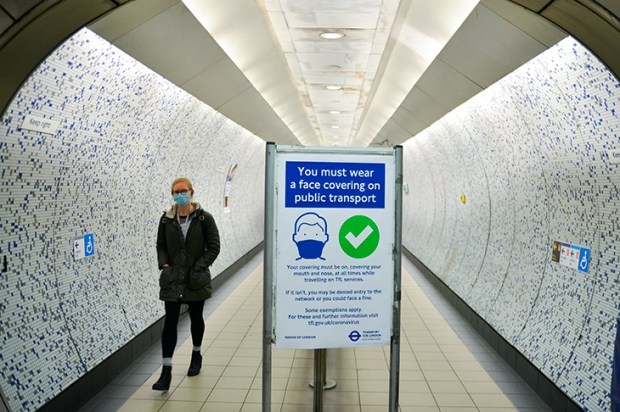
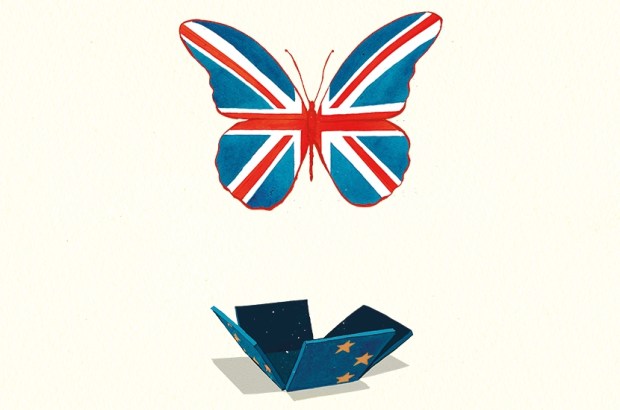
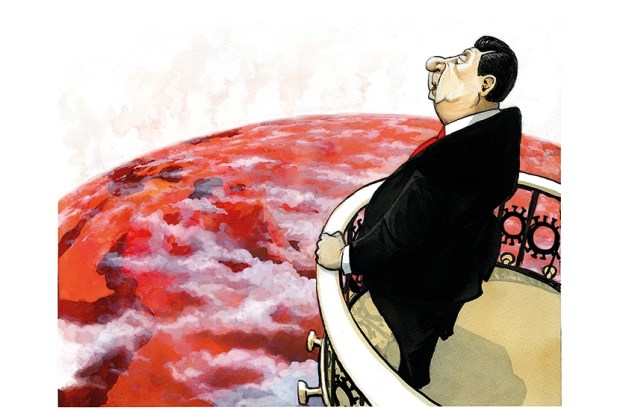

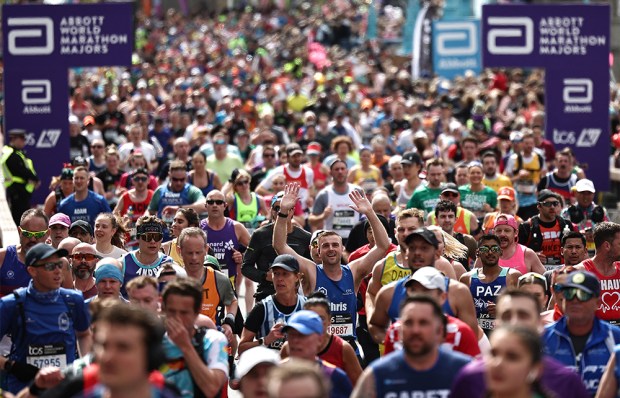
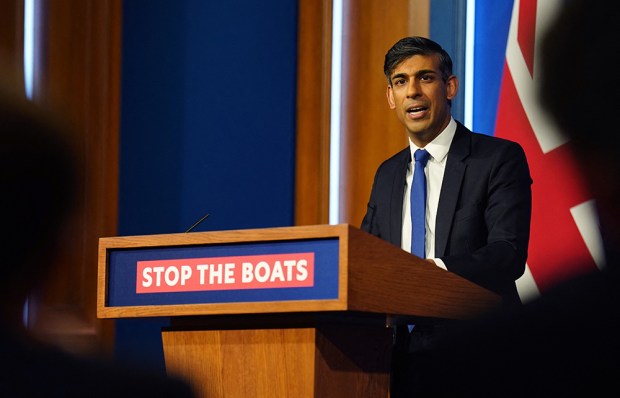






Comments
Don't miss out
Join the conversation with other Spectator Australia readers. Subscribe to leave a comment.
SUBSCRIBEAlready a subscriber? Log in